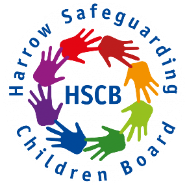Children and young people with disabilities
Download Safeguarding Disabled Children – Practice Guidance (Govt Guidance)
Download Children with Disabilities Service Strategy 2015-2018
Safeguarding Children to Safeguarding Adults Transition Protocol – July 2015
Glossary and Terms for Children with SEND
The children with disabilities service provides a service for children and young people up to age 18, with a moderate, severe or profound disability. We can help you with the following needs:
- social work support
- home care services
- play schemes
- short breaks
- direct payments
- moving into adulthood (transition)
- carers assessment
What kind of services do they offer?
Social work support
Social workers can help you in two main ways. They can support you in the parenting role and help you to access further services offered by Harrow Council. They will also act as an advocate on behalf of your child within the local authority and within other departments and agencies such as Education and Health.
Home care services
Some children and young people will require assistance with personal care. This may include washing, changing etc. If the assessment carried out by the social worker identifies a need for personal care services, they will liaise with their team managers and present their assessment to the Complex Needs Panel.
Play schemes
During school holidays a variety of play and activity schemes are available to disabled children. Services include: Kids Can Achieve, Youth Connexions and the Participation Team.
Short Breaks
Family Link is a scheme that links disabled children with individual carers, enabling them to experience short periods of time away from their parents. This could be for a few hours, overnight or a few days. Services that provide short breaks include The Firs Respite Unit for children and young people with learning disabilities, Buckets and Spades, Royal National Institute for the Blind and Radlett Lodge. Harrow plans to extend the volume and range of short break opportunities from April 2009 with Aiming High for Disabled Children funding from the government. Find out further information on the national Aiming High for Disabled Children.
Direct Payments
You can receive direct payments to buy services from an independent organisation, or employ a carer instead of having services arranged for you. A direct payment can only be made following an assessment of need.
Moving into adulthood (transition)
Transition planning will begin to take place as part of a young person’s special educational needs (SEN) annual review in year 9. This is to ensure that young disabled people receive the necessary support to help them plan for their future and to achieve their goals in adult life.
Carers Assessment
Care Managers conduct carers needs assessments to work out how best they can provide services to you and the person in your care. This is an opportunity for you to describe your role as a carer and what would make caring easier for you.
Unprotected, Overprotected: meeting the needs of young people with learning disabilities who experience, or are at risk of, sexual exploitation
This exploratory research study aimed to increase understanding of how to meet the needs of children and young people with learning disabilities who experience, or are at risk of, child sexual exploitation (CSE).
At the recent annual conference for NWG Network Emilie Smeaton from Paradigm Research presented on ˜Unprotected, Overprotected; Meeting the Needs of Young People with Learning Disabilities who experience or are at risk of, Child Sexual Exploitation.
Another presentation on ˜Young people with learning disabilities understanding the risk and safety was given by Sarah Goff and Anita Franklin
| The NSPCC Information Service has published a summary of risk factors and learning for improved practice from serious case reviews for professionals working with deaf and disabled children. |
| Source: NSPCC 03 February 2016 |
Further information:
Be safe and smart online – http://www.saferinternet.org.uk/news/national-deaf-childrens-society-helps-deaf-young-people-stay-safe-online
Empowering Ourselves to Be Heard ADHD/Autism Awareness Training for Professionals
This course is suitable for anyone who is working with or is interested in knowing more about ADHD/ASC and no previous knowledge is required. Delegates will be provided with a Certificate of Attendance on completion of the course.
Empowering also provide tailor made neurodiversity training (ADHD & Autism) to meet the particular needs of your profession or work situation. Please contact us for more information
To register on this workshop please:
- Email: autism@adhdandautism.org Phone: 020 8429 1552
- Or complete the booking form below and return to: Centre for ADHD & Autism Support Television House, 269 Field End Road, Eastcote, HA4 9XA
- Download Booking Form

